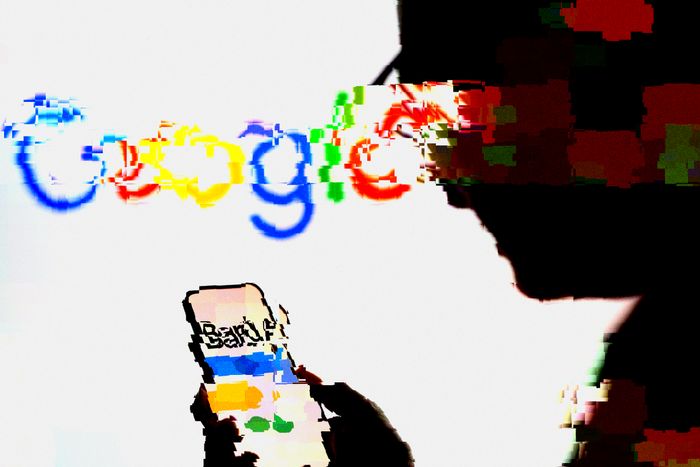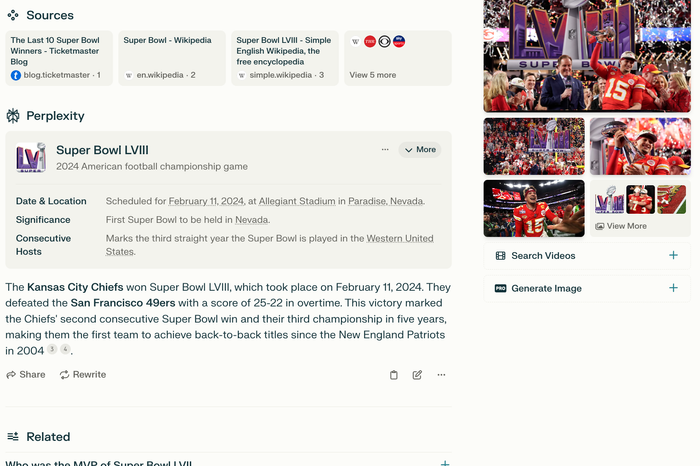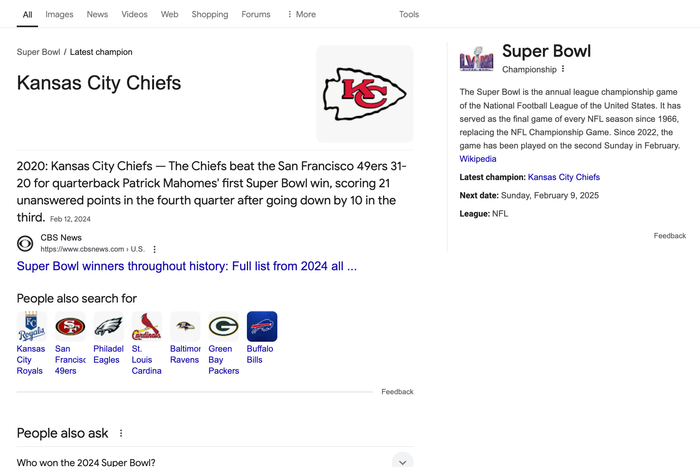

Photo-Illustration: Intelligencer; Photo: Getty Images
In June 2000, Google announced that it had won the search wars. “Google will now provide the default search service for Yahoo!” wrote founders Sergey Brin and Larry Page with a very 2000 sign-off: “Keep on Googlin’.” Over the nearly 25 years since, that’s what everyone did, turning Google into a $2 trillion company. Google took control of the most valuable thing on the internet — the box that people ask for stuff — and guarded it.
Over the past two decades, there have been some good alternatives but no true competitors. Microsoft spent more than $100 billion on Bing and never got beyond a single-digit market share; meanwhile, Google became a generic verb. While Google was better than the directories and search engines that came before it, in recent years the question of whether or not it’s still any good has become both hard to answer — at what? compared to what? – and discouragingly irrelevant.
Now, all at once, Google has something to worry about. The courts have declared it a monopoly; the searchable web has been made less relevant by social media; and, much like Yahoo! at its peak, it feels like a product built with advertisers, not searchers, in mind.
Then there’s AI. The arrival of ChatGPT in 2022, a new sort of box that people ask for stuff, sent Google, an AI powerhouse in its own right, into a panic. Google redesigned search to make it more like a chatbot, with mixed early results; meanwhile, AI companies are making their chatbots more like search engines. For the first time in years, tech giants and start-ups are competing directly with Google for control of the text box, and they think they have at least a slim chance of winning. Google seems to think so, too, if its risky rush into derivative and error-prone generative search is any indication.
Now, at the top of many searches, users can expect to see AI-generated answers synthesized from web results. Google had been testing this for a year before it launched widely in May. Despite a rocky rollout, the company has stuck with the concept. It’s watching competitors like OpenAI closely: As Ana Altchek at Business Insider reports, the company also appears to be taking design and feature cues from OpenAI and AI start-up Perplexity.
Google’s nervousness about chatbots as search competitors is in some ways perfectly reasonable. For certain sorts of queries, even early LLM-based chatbots offered a more satisfying experience than Google: They explained, engaged in dialogue, synthesized, and summarized, albeit with a tendency to sometimes make things up. For plenty of others, though, they were useless. In early 2023, ChatGPT could help you understand your homework, but it couldn’t tell you which team just won the Super Bowl — it was generating text, not retrieving information. It was a fundamentally different sort of machine that just happened to have a familiar sort of interface. For Google, figuring out if and how to merge AI-generated answers with search was always going to be difficult. After all, this is a company that brings in hundreds of billions of dollars a year from traditional search ads.
Outside of Google, though, something more surprising has been happening: Chatbots and AI search tools have started looking more like Google. Perplexity, a fairly popular search-specific AI tool, has gradually transformed from a chatbot that produces lots of footnotes into something that looks an awful lot like Google:
Photo-Illustration: Intelligencer; Photo: Perplexity
There’s a list of links, tagged here as “sources.” There’s a widget that looks a lot like Google’s old “knowledge panels,” which long predated generative AI. It’s even got related questions.
Photo-Illustration: Intelligencer; Photo: Google
Perplexity is a fundamentally different sort of product if you really engage with it. Rather than a list of results, what it gives searchers next is a prompt to ask another question. (If you ask it enough questions, it might even do some light plagiarism for you.)
For basic queries, the world’s largest search engine and comparatively minuscule start-ups are converging on a pretty similar product: a fairly conventional take on search, blending generated text with excerpts. (Note, however, that Google’s excerpt here is slightly wrong, referencing the Chiefs’ 2020 victory to support an answer about 2024.) That includes OpenAI, which recently started testing SearchGPT and seems to be building an extremely conventional search engine alongside its chatbot:
This sort of competitive convergence happens all the time in tech — consider how every social-media company turned its app into TikTok, while TikTok absorbed their features too — but it’s funny to see a product as old and familiar as Google merge conceptually with a category as new and vaguely defined as LLM-based chatbots. For Google, it’s an awkward stumble into an unknown future; for ultrahyped AI companies, it’s a step away from exciting novelty and into the boring, profitable past. (It’s also technologically convenient: AI companies are already spending a lot of money and time scraping and processing the web, so they might as well spin a search product out of it.)
Whatever sort of box you type into, colloquial insta-articles combined with link lists and website excerpts are what you can expect to see in the coming years. Whether or not these companies can figure out how to resolve the tension between technology that finds content and technology that generates content, they’re clearly convinced that they need to try.
This wouldn’t be a novel or particularly difficult problem for Google, which has fended off plenty of competent clones in the past, except for two things. One is that a likely outcome of the recent federal court ruling that the company has a search monopoly is that it will have to discontinue deals with companies like Apple, which it gives billions of dollars in exchange for making Google the default search engine on iPhones and other devices. This doesn’t guarantee more competition — Google would likely end up the default search engine for most users anyway, at least in the near future — but it at least cracks open the possibility, and the fact that AI companies are building fairly conventional search products within and alongside their chatbots seems to indicate that they’re going to take their shot. Meanwhile, companies like Apple, which make the software people use to access Google, have shown interest in using internet-connected chatbots to cleave off and answer a lot of basic questions on their own.
The other problem is that none of the above screenshots contain ads. It would be naïve to expect anything but an ad-filled future for the new generation of search engines, but for now, they’re using up runway to keep things clean while they try to grow, boxing Google into redesigning its most popular product away from its core business model.
Again, there are strong resonances with the past. In what is possibly the first-ever published review of Google Search, from 1998, Danny Sullivan, now a Google employee who sometimes deals with reporters, outlined the strengths of the new product and wondered about its business model:
So how about the results? I think many people will be pleased, especially for the ever-popular single and two-word queries. A search for “bill clinton” brought the White House site up at number one. A search for “disney” top-ranked disney.com, and sections within it like Disney World, the Disney Channel, and Walt Disney Pictures. Yet interesting alternative sites, such as Werner’s Unofficial Disney Park Links, also made it on the list.
Will Google be going commercial? [Co-founder Larry] Page has no opposition to it, but said there’s no particular hurry.
Compare this with Sam Altman earlier this year, who said that while OpenAI is “a business and will find plenty of things to charge for,” he’s “pleased” to be able to offer its core product for free. And while Google in 2024 isn’t quite Yahoo before the turn of the millennium — it’s both bigger and better matched against its new competitors — it has a target on its back, and there couldn’t be a bigger prize.






